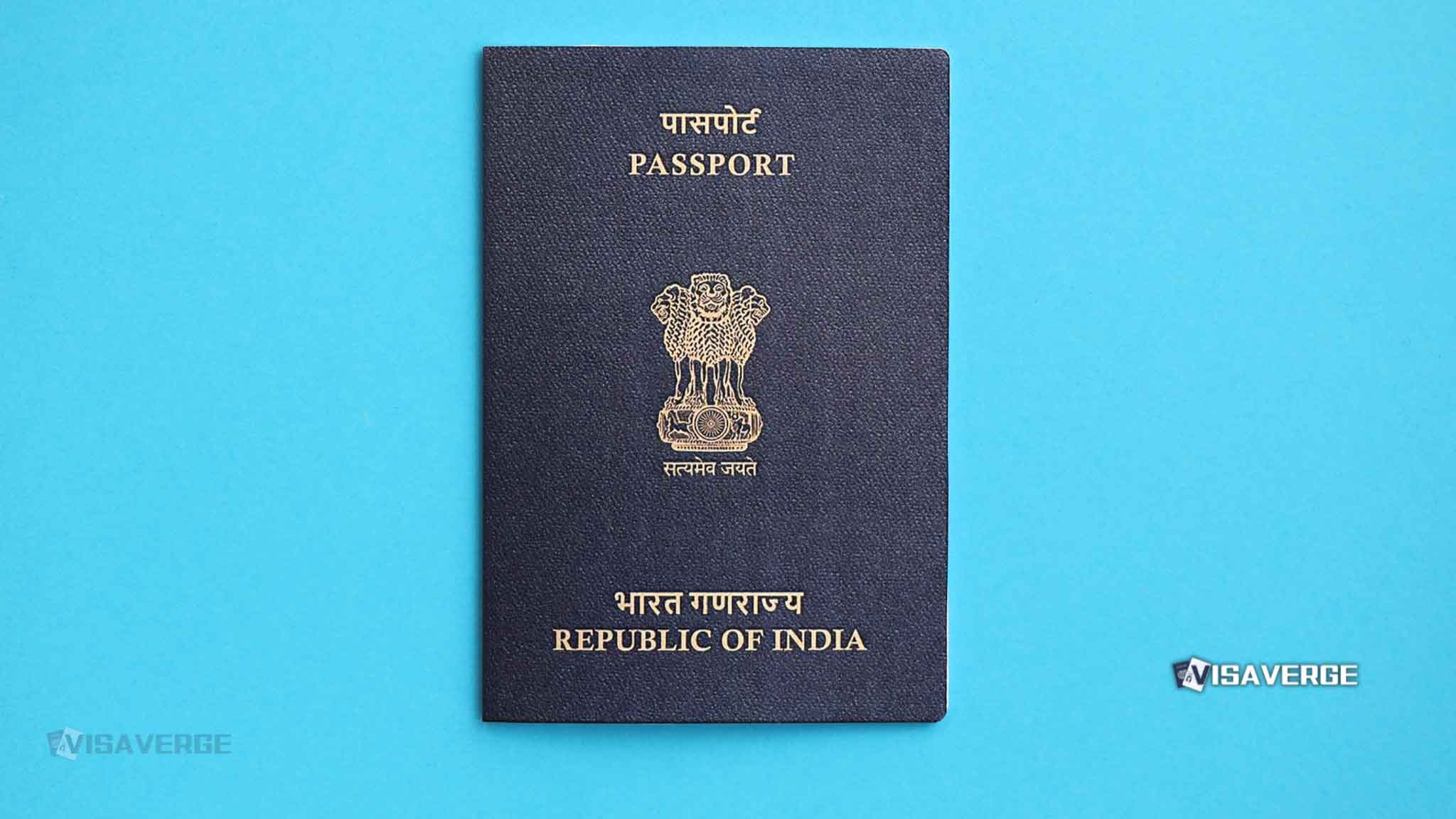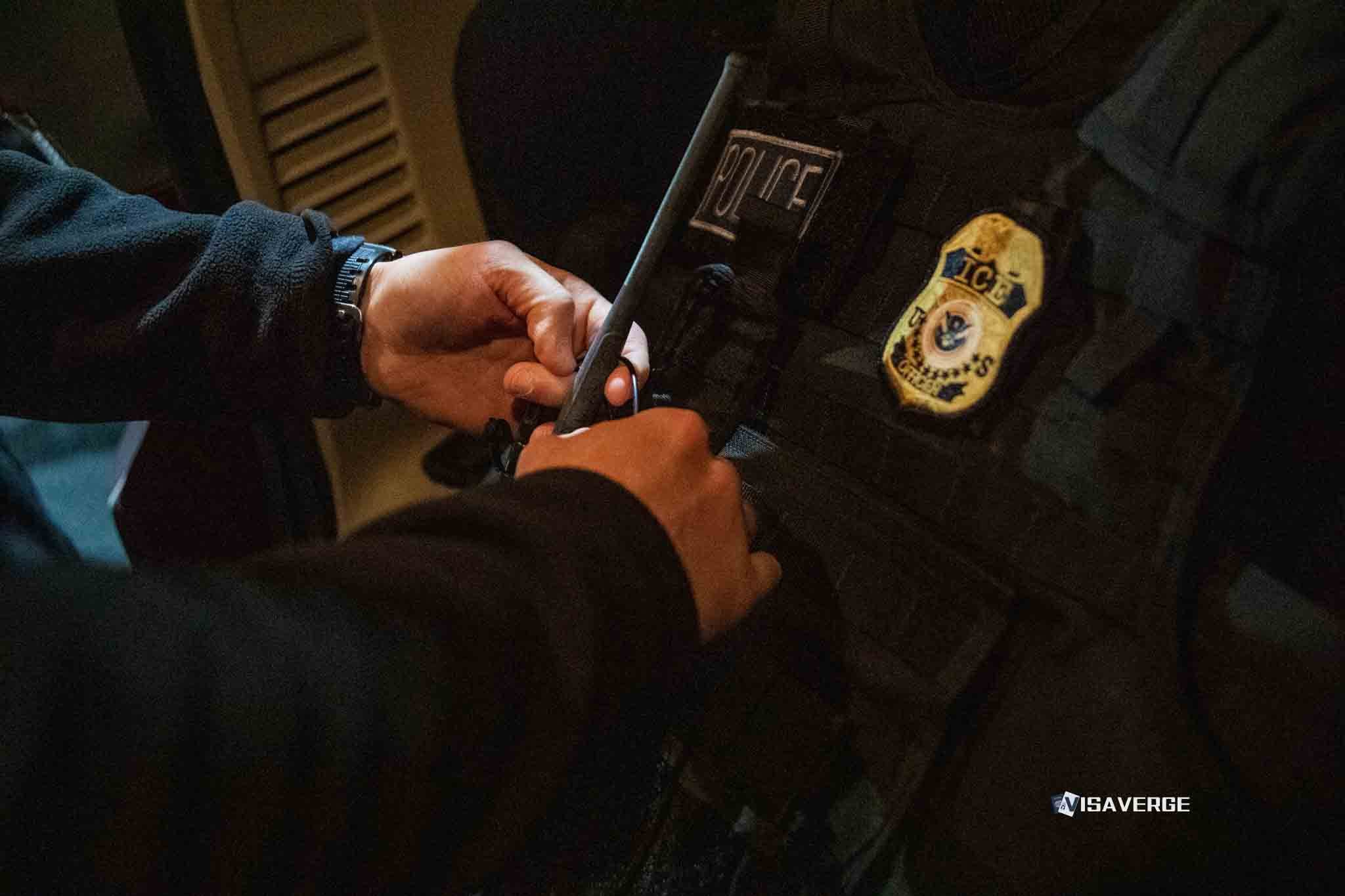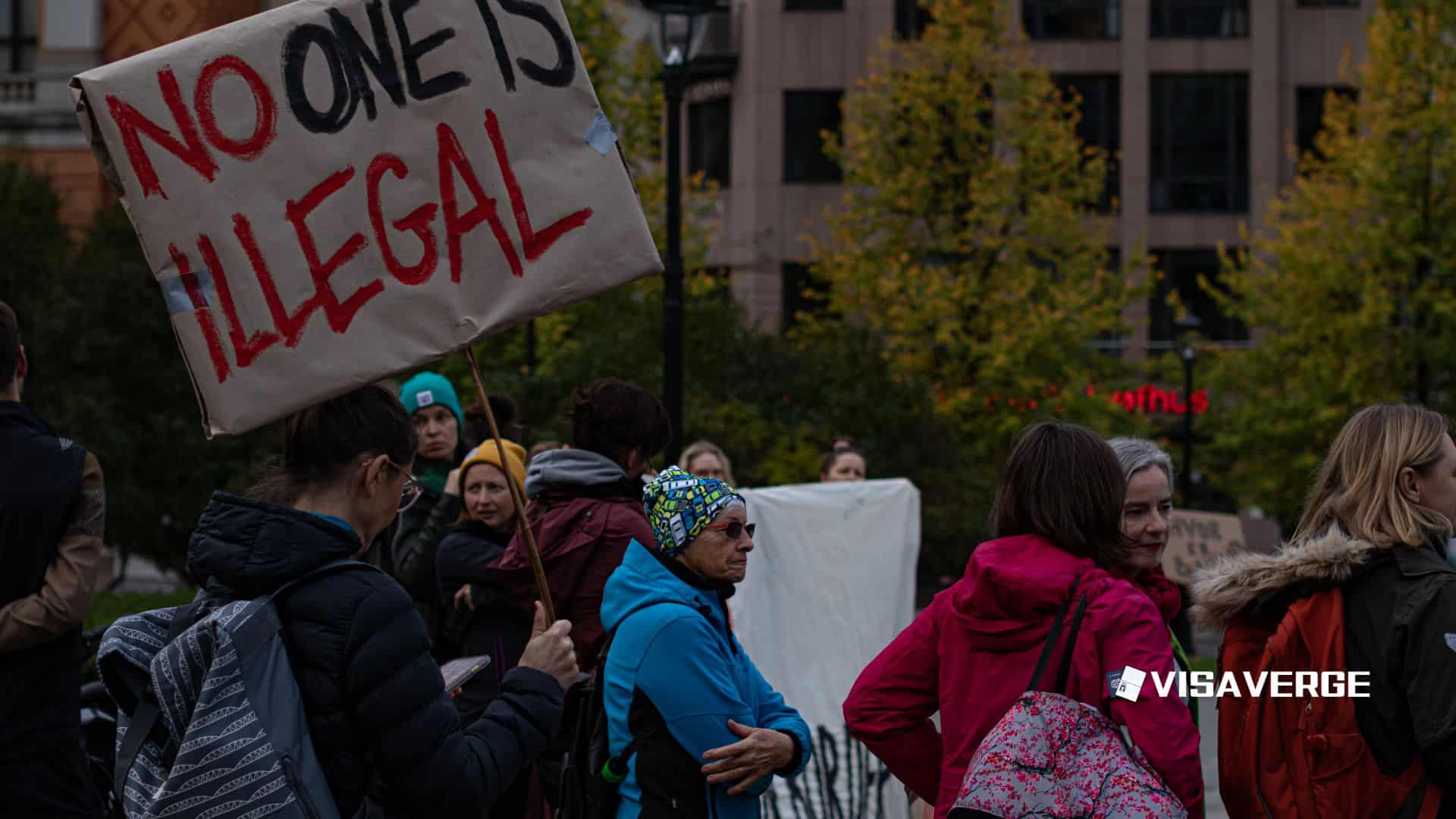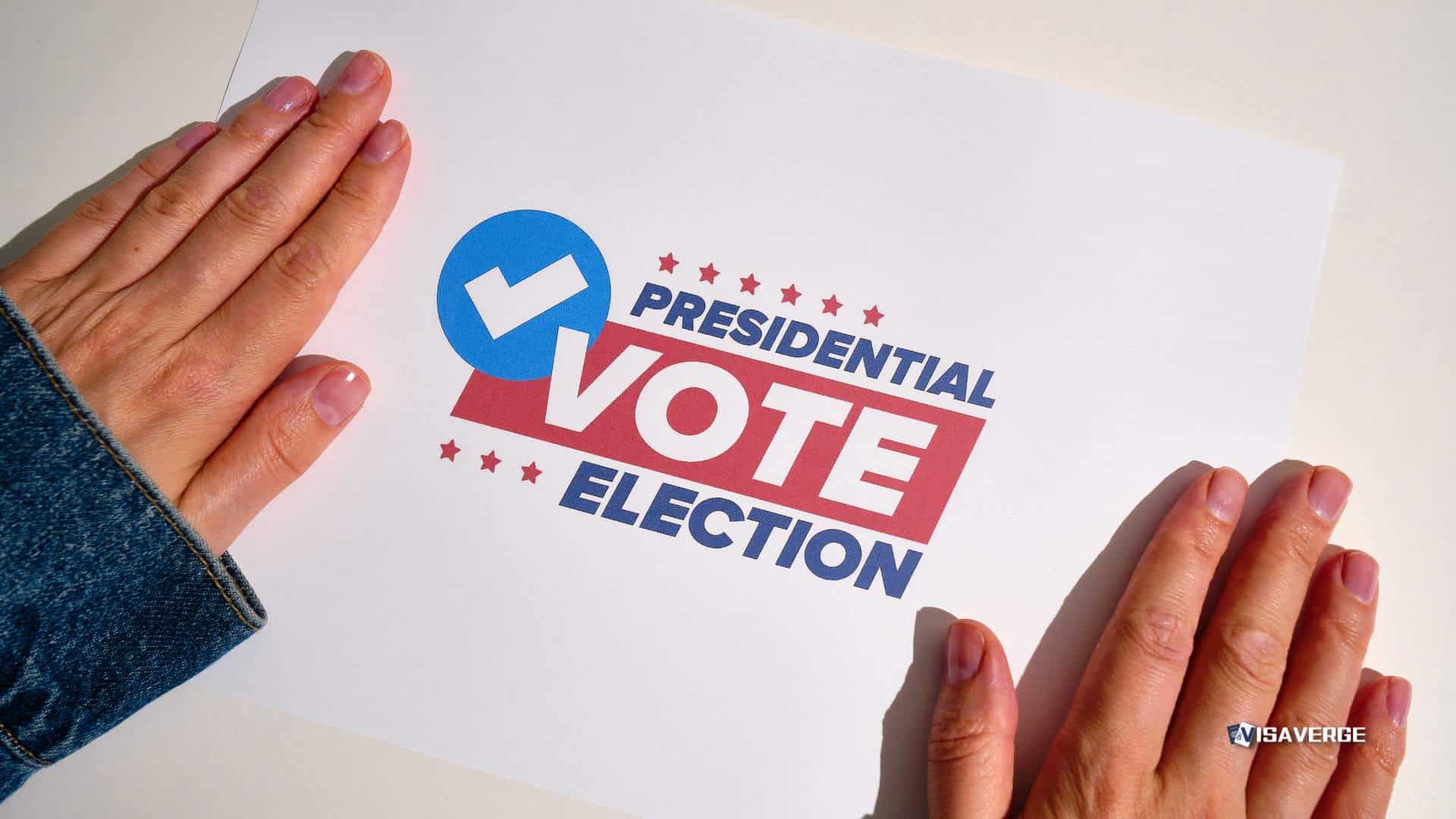Key Takeaways
• Louisiana’s strict immigration laws take effect August 1, 2025, expanding state enforcement roles.
• Operation GEAUX authorizes local police to enforce federal immigration laws alongside ICE.
• SB 15 criminalizes obstruction of ICE; HB 554 requires visible noncitizen ID codes.
Louisiana’s New Immigration Crackdown: An Analytical Overview
Purpose and Scope

This analysis examines Louisiana’s recent legislative and executive actions targeting undocumented immigration, focusing on the sweeping package of enforcement bills passed in June 2025 and the launch of Operation GEAUX. The scope includes the purpose and mechanisms of these laws, their anticipated effects on different groups, and the broader context within which these changes are unfolding. The analysis draws on official statements, legislative texts, and stakeholder perspectives to provide a comprehensive, evidence-based account of the situation as of late June 2025.
Methodology
The content is based on a review of official legislative documents, public statements from key officials including Governor Jeff Landry, and reporting from reputable sources. Quantitative data on Louisiana’s undocumented population and detention capacity are included to illustrate the scale of the issue. The analysis also considers the positions of various stakeholders—state officials, federal authorities, law enforcement, immigrant advocates, and legal scholars. Comparisons to historical practices and anticipated legal challenges are incorporated to provide context and forecast possible developments.
Key Findings Upfront
- Louisiana has enacted some of the strictest state-level immigration enforcement laws in the United States 🇺🇸, with new measures set to take effect August 1, 2025.
- Operation GEAUX empowers state and local law enforcement to enforce federal immigration laws directly, in partnership with U.S. Immigration and Customs Enforcement (ICE).
- Senate Bill 15 (SB 15) criminalizes any act by public officials or private individuals that obstructs federal immigration enforcement, with felony penalties.
- House Bill 554 (HB 554) requires “restriction codes” on IDs for lawfully present noncitizens and mandates official warnings against voting.
- Senate Bill 100 (SB 100) compels all state agencies to verify, track, and report the immigration status of anyone receiving public services, with referrals to ICE for those with “unsatisfactory” status.
- Governor Jeff Landry and the Trump administration strongly support these measures, while immigrant rights advocates and legal scholars warn of discrimination, increased surveillance, and likely constitutional challenges.
- The new laws will impact law enforcement, public officials, noncitizens, state agencies, and the general public, with far-reaching consequences for access to services and civil liberties.
Data Presentation and Visual Descriptions
- Undocumented Population: As of 2021, Louisiana’s estimated undocumented immigrant population was about 97,000. Current figures are believed to be higher, reflecting recent trends.
- Detention Capacity: Nearly 7,000 people are currently held in Louisiana’s nine immigration detention centers.
- Scope of Impact: The new laws will affect all state agencies providing services, including Health, Education, Corrections, Children & Family Services, and Motor Vehicles.
Imagine a map of Louisiana with nine marked detention centers, each holding hundreds of individuals. Overlay this with a chart showing a steady rise in the estimated undocumented population over the past decade, and a pie chart breaking down the types of state agencies now required to verify and report immigration status.
Comparisons, Trends, and Patterns
Louisiana’s approach marks a significant departure from its historical role in immigration enforcement. Traditionally, immigration law has been the domain of the federal government, with states playing a limited part. The return of President Trump to office in 2025 has triggered a renewed push for state-federal partnerships and mass deportation efforts. Louisiana, under Governor Jeff Landry, is among the first states to implement such aggressive measures, setting a precedent that other Republican-led states may follow.
A key trend is the shift from passive to active state involvement in immigration enforcement. Operation GEAUX and the new laws require local police, public officials, and state agencies to participate directly in identifying, detaining, and reporting undocumented immigrants. This represents a move toward a more integrated, surveillance-oriented model of immigration control at the state level.
Detailed Policy Mechanisms
Operation GEAUX
Launched in May 2025, Operation GEAUX is a direct partnership between Louisiana and federal authorities, especially ICE. The initiative authorizes state and local law enforcement to:
- Enforce federal immigration laws directly, including detaining individuals suspected of being undocumented.
- Conduct enhanced screening at traffic stops, jails, and public facilities.
- Run a public awareness campaign about the new enforcement regime.
Governor Jeff Landry described Operation GEAUX as “historic” and “one-of-a-kind,” aligning Louisiana’s efforts with President Trump’s call for “the largest domestic deportation operation in American history.”
Senate Bill 15 (SB 15)
SB 15, set to take effect August 1, 2025, expands the crime of malfeasance in office. It now includes any act that “hinders, delays, prevents, or otherwise interferes with” federal immigration enforcement. This applies to:
- Public officials (including police, judges, and agency heads)
- Private individuals who obstruct enforcement
Penalties: Violators face felony charges and up to 10 years in prison. The law is designed to eliminate so-called “sanctuary” practices and ensure full cooperation with ICE.
House Bill 554 (HB 554)
HB 554 requires the Louisiana Office of Motor Vehicles (OMV) to:
- Place a “restriction code” on driver’s licenses and state IDs issued to lawfully present noncitizens.
- Send official notices to these individuals warning them that voting is a felony offense.
Note: This does not apply to undocumented immigrants, who are already ineligible for licenses. The restriction code is visible and intended to signal noncitizen status to law enforcement and other officials.
Senate Bill 100 (SB 100)
SB 100 mandates that all state agencies (Health, Education, Motor Vehicles, etc.):
- Verify, track, and report the immigration status of anyone receiving public services.
- Refer those with “unsatisfactory immigration status” to ICE.
- Submit annual reports to the governor and legislature detailing compliance.
Noncompliance: Agencies risk loss of funding if they fail to meet these requirements.
Step-by-Step Procedures
For Law Enforcement and Public Officials:
- When detaining or encountering someone suspected of being undocumented, law enforcement must verify immigration status.
- If the person is believed to be unlawfully present, ICE must be notified.
- Public officials must comply with all ICE requests; failure to do so is a felony under SB 15.
For State Agencies:
- Agencies must collect and verify immigration status for all applicants for public services.
- If an applicant is found to be an “illegal alien” or “unaccompanied alien child,” the agency must report this to ICE and include the data in annual reports.
For Noncitizens Seeking IDs:
- Lawfully present noncitizens applying for a driver’s license or state ID will receive a credential with a “restriction code.”
- They will also receive an official notice warning them not to attempt to vote.
Practical Effects and Stakeholder Impacts
Law Enforcement: Police and sheriffs now have expanded powers and responsibilities. They must enforce federal immigration laws, detain suspected undocumented immigrants, and cooperate fully with ICE. Noncompliance can result in felony charges.
Public Officials: Judges, agency heads, and other officials face criminal penalties if they refuse to cooperate with federal immigration authorities, including failing to notify ICE before releasing a suspected undocumented immigrant.
Noncitizens: Lawfully present noncitizens will have a visible marker on their state-issued IDs, increasing the risk of discrimination and stigmatization. They will also receive warnings about the legal consequences of voting.
State Agencies: Agencies must implement new systems for verifying and reporting immigration status. Failure to comply can result in loss of funding, putting pressure on agencies to prioritize enforcement over service delivery.
General Public: Increased surveillance and reporting requirements may affect access to public services, especially for mixed-status families. Immigrant communities may experience heightened fear and reluctance to seek help from state agencies.
Stakeholder Perspectives
| Stakeholder | Position/Concerns |
|---|---|
| State Government (Landry) | Strongly supports; sees as fulfilling Trump’s law-and-order agenda |
| Trump Administration | Praises Louisiana as a model; seeks similar cooperation nationwide |
| Law Enforcement | Given expanded powers and responsibilities; must comply or face criminal penalties |
| Immigrant Advocates | Oppose; warn of discrimination, surveillance, and constitutional violations |
| State Agencies | Face new reporting and compliance burdens; risk funding loss for noncompliance |
| Legal Scholars | Warn of likely constitutional challenges, especially regarding compelled cooperation with ICE |
Comparative and Historical Context
Historically, Louisiana has played a limited role in immigration enforcement, with most authority resting at the federal level. The Trump administration’s return in 2025 has led to a nationwide push for state-federal partnerships and mass deportation efforts. Louisiana’s new laws are a direct response to perceived federal inaction under the previous administration and reflect a broader trend toward state-level involvement in immigration control.
Evidence-Based Conclusions
- Louisiana’s new laws represent a significant escalation in state-level immigration enforcement, with broad implications for civil liberties, public service delivery, and community relations.
- Operation GEAUX and the associated legislation are likely to serve as a model for other states seeking to align with the Trump administration’s immigration agenda.
- The measures are expected to face legal challenges, particularly regarding compelled cooperation with federal authorities and the marking of noncitizen IDs.
- The practical effects will be felt across law enforcement, public agencies, and immigrant communities, with increased risk of discrimination and reduced access to essential services.
Limitations
- Legal Uncertainty: Some provisions may be challenged in court, especially those that compel state cooperation with federal authorities, potentially delaying or altering implementation.
- Data Gaps: Current figures on the undocumented population are estimates; actual numbers may be higher or lower.
- Implementation Challenges: State agencies may face difficulties in developing new verification and reporting systems, and there may be inconsistencies in enforcement across jurisdictions.
Future Outlook
- The new laws are set to take effect August 1, 2025, pending the governor’s signature, which is expected.
- Legal challenges are anticipated, particularly regarding the constitutionality of compelled cooperation and ID marking.
- Other Republican-led states are likely to watch Louisiana’s experience closely and may adopt similar measures.
- The Trump administration has hinted at further federal actions, including possible use of the Insurrection Act to deploy the military domestically for immigration enforcement.
Official Resources and Further Information
For the latest updates and official information, readers can visit the Louisiana Governor’s Office, which provides press releases and executive orders related to these changes. The Louisiana Legislature offers access to the full text of bills and legislative tracking. The Louisiana Office of Motor Vehicles will provide guidance on new ID requirements. For federal immigration enforcement policies, visit U.S. Immigration and Customs Enforcement (ICE).
Authoritative Perspective
As reported by VisaVerge.com, Louisiana’s aggressive new approach is likely to shape national debates on immigration enforcement and state-federal cooperation. The state’s actions have already drawn praise from President Trump and criticism from civil rights groups, setting the stage for legal and political battles in the months ahead.
Actionable Takeaways
- For immigrants and their families: Be aware of new verification and reporting requirements when accessing state services. Lawfully present noncitizens should expect visible markers on state-issued IDs and official warnings about voting.
- For public officials and law enforcement: Strict compliance with federal immigration enforcement is now required, with felony penalties for noncooperation.
- For advocates and legal professionals: Monitor developments for potential legal challenges and be prepared to advise affected individuals and agencies.
- For the general public: Stay informed about changes to public service access and reporting requirements, especially if you or your family members are immigrants.
Conclusion
Louisiana’s new immigration laws and Operation GEAUX represent a major shift in state-level enforcement, with far-reaching implications for immigrants, public officials, and the broader community. While supporters argue these measures are necessary to restore law and order, critics warn of discrimination, surveillance, and constitutional violations. The coming months will reveal how these laws are implemented, challenged, and possibly replicated elsewhere in the United States 🇺🇸.
For more details on the legislative process and official updates, visit the Louisiana Legislature’s website.
Learn Today
Operation GEAUX → A Louisiana state-federal partnership launched in May 2025 to enforce immigration laws with local police and ICE cooperation.
Senate Bill 15 (SB 15) → A 2025 Louisiana law criminalizing obstruction of federal immigration enforcement with felony penalties for officials and individuals.
House Bill 554 (HB 554) → Legislation requiring restriction codes on IDs of lawfully present noncitizens and official voting warnings.
Illegal Alien → A person residing in the US without legal immigration status, targeted for enforcement under these laws.
ICE → U.S. Immigration and Customs Enforcement, the federal agency responsible for immigration enforcement and deportation.
This Article in a Nutshell
Louisiana’s new immigration crackdown intensifies state-federal cooperation under Operation GEAUX, enforcing laws with harsher penalties. These sweeping August 2025 measures will affect law enforcement, public officials, legal immigrants, and agencies, triggering legal challenges and significant civil liberty debates amid rising undocumented populations.
— By VisaVerge.com













